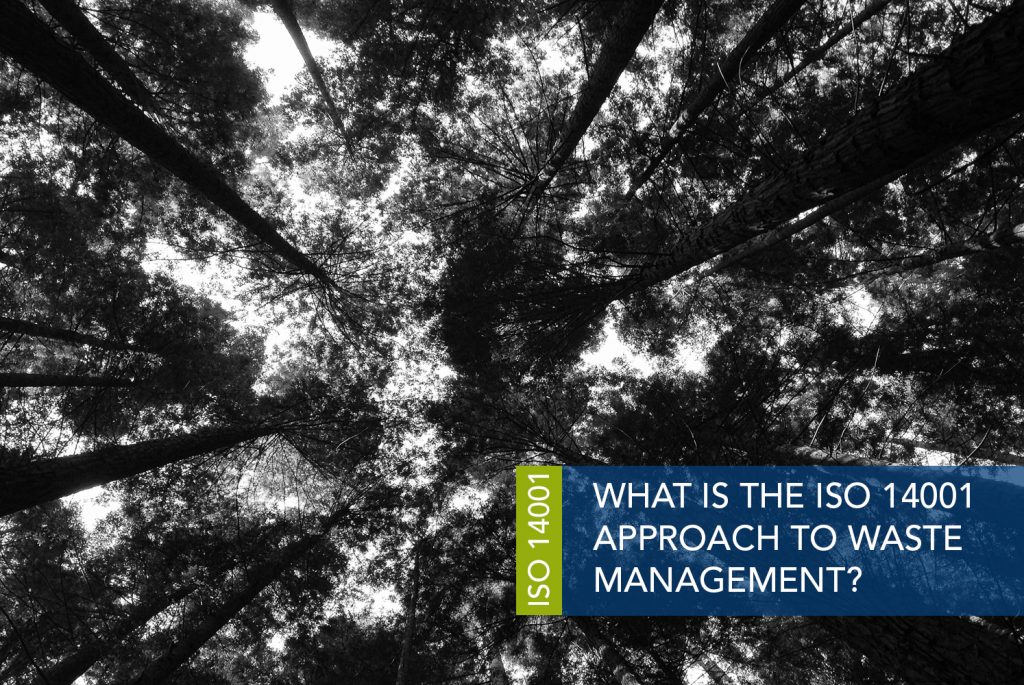
What is the ISO 14001 approach to waste management?
April 15th, 2020 By MarketingWith mounting pressure from all angles for companies to reduce their environmental impact, you may be starting to consider what steps you can take to reduce waste in your business. In your research you may have come across Environmental Management Systems (EMS) and the certification ISO 14001; a great place to start in the implementation of a waste management strategy.
To understand the ISO 14001 approach to waste management a little better, we dive deeper into the relevant processes outlined in the standard, and how reducing waste can be beneficial to your business.
What is an EMS, and what is ISO 14001?
First of all, what exactly is an EMS, and what is ISO 14001?
An ‘Environmental Management System’ or ‘EMS’ is a tool that sets out measures to reduce waste and overall environmental impact, as well as enhance a company’s efficiency. The ISO 14001, the internationally recognised standard for Environmental Management Systems, is a framework to aid in the set up of such a system.
If you want to find out more information about what ISO 14001 and why it’s important, we have detailed this here.
What does ISO 14001 aim to do to eliminate waste?
The main priority of the international standard is to eliminate waste, and it does so in a variety of ways, including the following:
- It encourages the re-use of waste for other services
- It focuses on recovering energy from waste
- It emphasises the importance of separating waste into recyclable and non-recyclable
- It measures environmental impact, and outlines the steps that you must abide by to implement an EMS
- It sets out what the leadership in your company need to focus on
- It defines where responsibility falls in terms of resources, facilities and people, to enhance performance
- It analyses the performance of the EMS and how to improve it, to ensure future progress in eliminating waste
The process of certification works to a certain set of stringent principles that further explain its approach to eliminating waste. First, it follows “Say What It Does”, documenting day to day operations. Moving then to “Do What It Says”, whereby you conform to these practices. Finally you “Prove It”; this stage is an audit to prove that the procedures have been complied with, in order to receive the certification.
So, what are the benefits of reducing waste with ISO14001 for your company?
Aside from helping to protect the environment in a time where this is extremely topical, there are many other tangible benefits for your company. These include, but are not limited to, the following:
- There are numerous financial benefits, including improving efficiency and therefore business performance. It also cuts costs for waste management and reduces energy and water consumption. The process will further identify future cost savings for your company.
- It ensures compliance with current laws, helping to avoid breaches of regulations, thereby reducing the risk of prosecution for your business.
- It fortifies the company’s reputation, and gives a boost to company image through a clear demonstration of commitment to reducing waste, and therefore commitment to contributing to protecting the environment.
For more information about the benefits of ISO 14001 for your business, you can find it in our comprehensive guide.
What steps can you take to get it?
Wondering if you qualify? The ISO 14001 is a generic standard which means it is applicable to organisations of all shapes and sizes.
Interested in finding out more? IMSM can advise you on current systems and your business circumstances, as well as support you in the process of getting your company certified.
For a free quotation from an IMSM specialist on ISO standards, contact us here.

Contact Us
For a free Quotation or Remote presentation by an ISO Specialist, contact us today!
IMSM Ltd Head Office
The Gig House
Oxford Street
Malmesbury
Wiltshire
SN16 9AX